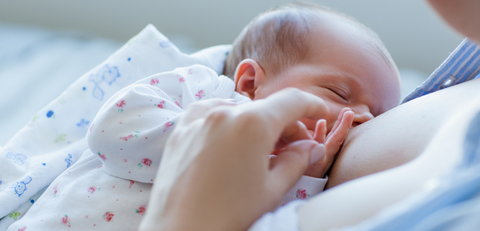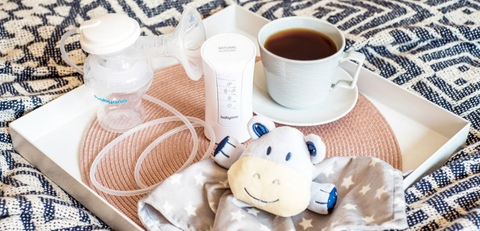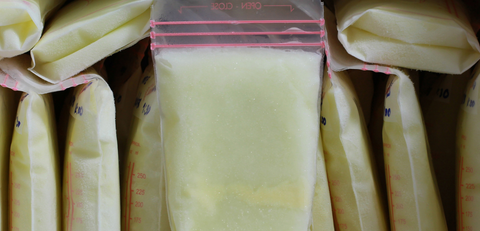As a nursing mother, it is important to follow the proper breast milk storage and preparation guidelines. It helps you uphold the safety and quality of expressed milk, which is vital to your baby’s health. The storage guidelines for freshly expressed milk vary depending on the room temperature during expression, milk volume, cleanliness o the environment, and temperature fluctuations in the refrigerator or freezer. These factors determine the duration through which expressed human milk can be stored safely.

What are some of the storage guidelines every nursing mother should know about?
Nursing mothers need practice utmost precaution when storing expressed breast milk. If not, some careless mistakes can easily affect the health of the baby. Listed below are some important storage guidelines.

Freshly Expressed Milk Storage Tips
- Store on countertop (25°C) for up to 4 hours
- Store in the refrigerator (4°C) for up to 4 days
- Store in the freezer (-18°C) for up to 6 months. 6 months is the best, but it is acceptable to store up to 12 months.

Thawed, previously frozen
- It should not exceed 2 hours on the countertop (25°C), preferably 1 hour
- If refrigerated at 4°C, it should not exceed a day (24 hours)
- Never refreeze breast milk after thawing it
Feeding leftovers (ie if baby did not finish the bottle)
- Use this milk within 2 hours post feeding time

What are the safety guidelines to follow before expressing breast milk?
Cleanliness is always at the top of the list when handling baby. It is the same case when handling breast milk. As such, you need to wash your hands thoroughly with soap and water before expressing. Once your hands are clean, inspect your breastpump kit including its tubes to make sure it is clean. In case you notice a moldy tube, it is best to replace it immediately. If you use a shared pump kit, always clean the pump dials, power switch, and the countertop using a disinfectant wipe. Always practice utmost precaution when handling breast milk to keep baby healthy.

What are the safety guidelines to follow when storing expressed breast milk?
After safely expressing your breast milk under safe and clean conditions, it is best to store it in a clean and safe environment. There is much more that goes into breast milk storage than just putting the milk in the refrigerator. Some of the storage tips include:
- Use clean breast milk storage bags. If you don’t have these, clean food-grade glass or plastic containers are sufficient. Just ensure that they have tight-fitting lids
- Avoid using bottles or containers made of BPA-containing plastic. Check out for the recycle symbol number 7
- Avoid using disposable bottle liners for breast milk storage. Any plastic bag that’s not designed for breast milk storage should never be used for the same.
- Store freshly expressed milk:
- At room temperature (25°C) for up to 4 hours
- In the fridge for up to 4 days
- In a fridge freezer for 3 months
- In the deep freezer for preferably 6 months, although 12 months is acceptable too
- It is important to note that although freezing keeps food safe almost indeterminately, it is vital to follow the recommended storage durations for best quality
- Before storing your breast milk ensure to label it clearly with the date of expression
- Avoid storing your milk in the refrigerator or freezer doors. If you do, you expose it to temperature fluctuations that result from opening and closing these doors.
- Any breast milk that you don’t intend to use within 4 days is best stored in the freezer right after expression. Doing this, helps you protect the quality of your breast milk.
- Since you don’t want to waste your breast milk, it is important to store it in small quantities to avoid having any leftovers after feeding your baby.
- Milk expands during freezing, as such, it is best to leave some space in the storage cup
- If you leave your baby with a child care provider to whom you deliver the breast milk, ensure that the bottle is clearly labeled with your baby’s name. Also, consult with your childcare provider in case they have other labeling and storage options
- When travelling, you can always store your breast milk in an insulated cooler bag with some frozen ice packs. It keeps your milk safe for up to 24 hours. Once you get to your destination, however, it is important to refrigerate or freeze the milk immediately.

Babies are quite fragile, and it is up to us mums to make to take utmost precautions when handling anything that they could get in contact with. This is especially true for newborns. Cleaning, sanitising, and the proper storage of your pumping equipment are a vital part of effective child care.
Source Links

